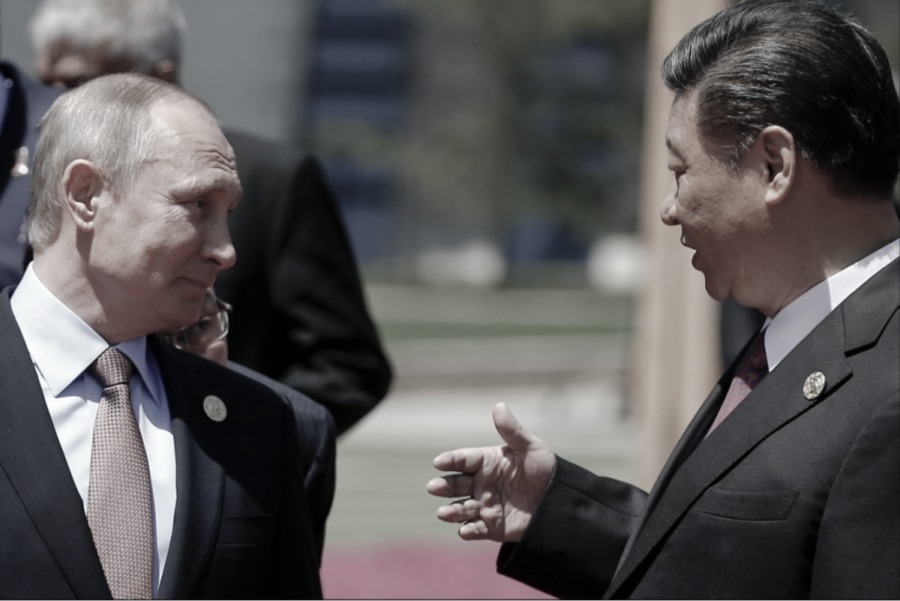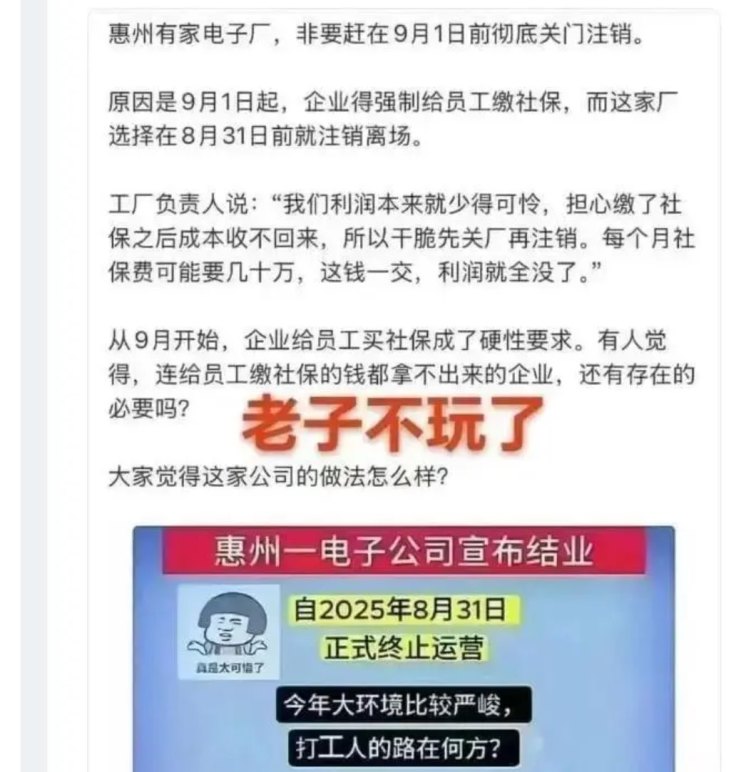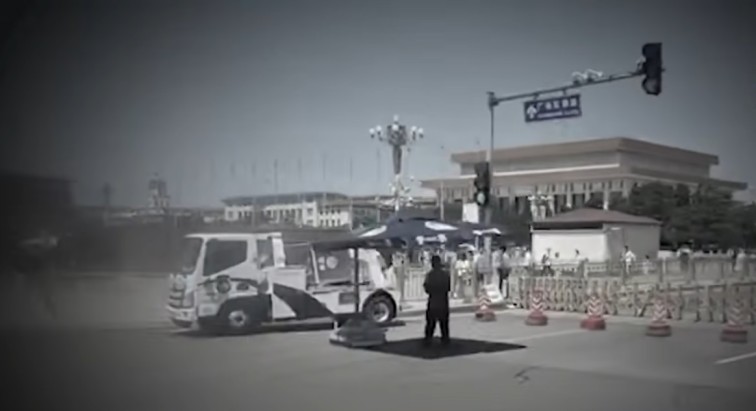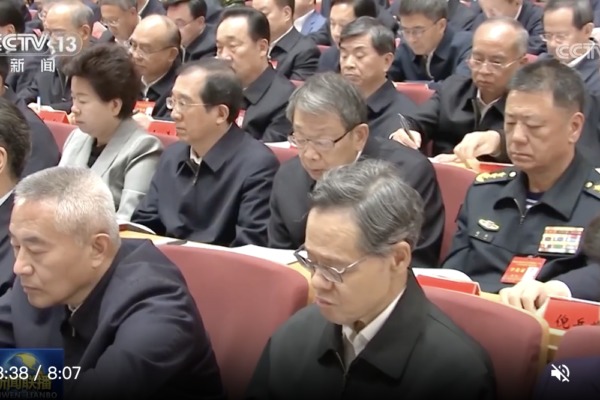File Photo: Putin and Xi Jinping Posing for a Photograph
[People News] On August 31, during the opening of the Shanghai Cooperation Organisation summit in Tianjin, Xi Jinping welcomed Indian Prime Minister Modi, Russian President Putin, and leaders from around 20 other countries from the Global South. This visit marks Modi's first trip to China in seven years.
Prior to the summit, Russia had been advocating for the first trilateral talks among China, Russia, and India in six years, with the goal of strengthening the core of the BRICS alliance.
Moscow believes that reviving high-level dialogue among the three largest BRICS nations will help ease long-standing tensions, especially between India and China, and showcase a more united front against the West.
1. The CCP Lacks Funds to Purchase Russian Oil, Seeking to Involve India in Partnership
According to reports from Deutsche Welle, U.S. President Trump is thought to have unintentionally encouraged these countries to come together more closely by imposing higher tariffs on BRICS nations—a loose coalition of the world's fastest-growing emerging economies—compared to other countries.
As the largest member of BRICS, China faces a 145% tariff threat if it cannot reach an agreement with Trump; in contrast, Brazil and India are subjected to a 50% tariff—half of India's punitive tariffs arise from its purchases of discounted Russian oil. South Africa faces a 30% tariff, and even new member countries like Egypt may be at risk of tariff increases.
New Delhi is enhancing its economic connections with China by restoring direct flights, easing visa restrictions, and increasing trade discussions. The two nations have also engaged in negotiations to address long-standing disputes along their border control line.
During the recent visit of Chinese Foreign Minister Wang Yi (Wáng Yì) to India, Beijing agreed to boost the supply of rare earth minerals to this South Asian nation. China currently dominates over 85% of global rare earth processing, and India urgently requires these minerals for clean energy, electric vehicles, and defence technologies.
China's exports of electromechanical products have consistently made up more than half of its total exports, with a growing share in categories such as vehicles. Russia continues to hold a leading position in energy products, including crude oil, refined oil, and diesel. India exports jewellery, electromechanical products, pharmaceuticals, chemicals, and vehicles, with Indian officials highlighting the robust growth in electronics and pharmaceuticals.
It appears that China and India could serve as markets for Russia; however, Russia lacks the financial resources to purchase such a significant volume of goods from both China and India. India remains heavily dependent on the U.S. market and technology, with total exports to the U.S. projected to reach $77.5 billion in 2024, significantly surpassing exports to Russia and China. In total, 18.25% of Indian exports go to the U.S., making it India's largest market. In contrast, exports of Indian products to China are only 3.42%, and there are virtually none to Russia, raising questions about why Modi (Mó Dī) would choose to participate in such an organisation.
Nevertheless, since 2020, India's GDP has surged by 46.28%, increasing from $2.68 trillion to $3.9 trillion.
2. There is considerable suspicion between China and India.
According to reports from the Russian News Agency, on September 1, Modi remarked during a meeting: 'We (China and India) are very confident in developing our bilateral relations based on mutual trust, respect, and understanding.'
Trade among BRICS countries is growing at a faster rate than trade between BRICS and G7 countries, although a significant portion of this trade consists of oil and natural gas. Research from the Boston Consulting Group indicates that internal trade barriers among BRICS nations are more pronounced than those faced by countries in the Global North.
India's scepticism towards the Chinese Communist Party, coupled with its long-standing ties to Washington, could impede the progress of BRICS initiatives. Despite both nations supporting each other in hosting the BRICS summits in 2026 and 2027, the future of Sino-Indian relations remains uncertain due to New Delhi's concerns regarding Beijing's ambitions in Asia.
Shilan Shah, an emerging markets economist at the London-based think tank Capital Economics, highlighted that China's close ties with India's primary rival, Pakistan, and the hydropower projects initiated by Xi Jinping on the Tibetan Plateau have raised alarms in New Delhi. He also noted in a research report that 'a significant influx of cheap Chinese imports' is 'undermining India's efforts to bolster its domestic industries.'
3. Russia may shift its focus towards Asia.
Authoritarian regimes often create imaginary international enemies to sustain their power. Russia had previously identified the U.S.-led NATO as its imaginary foe. Following setbacks in the Russia-Ukraine conflict and the potential for U.S. mediation suggesting an end to hostilities, Putin quickly redirected his attention to Asia, now viewing Japan as the new imaginary adversary.
On August 31, TBS NEWS BIG published an article titled 'President Putin visits China, criticising Japan's 'militarism is resurrecting' during a pre-visit interview, and emphasising the unity between China and Russia.'
On the same day, Sankei Shimbun's online news reported that 'Putin stated, 'Using the fabricated China-Russia threat theory as an excuse, Japan is resurrecting militarism,' and highlighted the shared stance of China and Russia on historical issues.'
On September 1, the Russian News Agency released an article titled 'China and Russia join hands to defend historical justice and promote the construction of a multipolar world order.' In this article, Putin reflected on their shared historical memory during an interview at the SCO summit: 'The Soviet Union and the Chinese people bore the brunt, suffering the most severe and numerous casualties in the war...'
Currently, there is no official statement from the Chinese Communist Party asserting that 'Japanese militarism is resurrecting.' However, on August 15, the anniversary of Japan's defeat, Wang Yi, a member of the Political Bureau of the Central Committee of the Communist Party and Minister of Foreign Affairs, remarked at a joint press conference following the 10th Foreign Ministers' Meeting of the Lancang-Mekong Cooperation:
'Eighty years ago today, Japan was defeated, accepted the Potsdam Declaration, and announced its unconditional surrender. Yet, even today, there are still some factions within Japan that glorify aggression, deny it, distort history, alter it, and even attempt to overturn the judgments against war criminals from that time.'
Media commentator Zhai Shanying noted that the CCP's 93rd military parade presented itself as a key player in the anti-Japanese resistance, telling a grand lie to the world while accusing Japan of distorting history, leaving one to wonder when the CCP will come to terms with the past.
On August 26, Vyacheslav Volodin, the Chairman of the State Duma of Russia, remarked during a meeting with Huang Qiang, the Secretary of the Jilin Provincial Committee of the Communist Party of China and Chairman of the Standing Committee of the Jilin Provincial People's Congress, that the development of cooperation between Russia and China in the region should be grounded in the principles of good-neighborliness and friendship.
On September 1, Alexey Chekunkov, the Minister for the Development of the Russian Far East and Arctic, stated in an interview with the Satellite News Agency on the eve of the Eastern Economic Forum that construction of engineering and transportation infrastructure has commenced in the industrial zone near the Blagoveshchensk-Heihe cross-border highway bridge, which is intended to become one of the first international advanced development zones in the Far East.
Russia's shift towards Asia is becoming increasingly clear; Xi Jinping has already aligned himself with Putin, while Modi has not yet made an official statement and may still be caught between Trump, Putin, and Xi Jinping.
(People News first published) △









News magazine bootstrap themes!
I like this themes, fast loading and look profesional
Thank you Carlos!
You're welcome!
Please support me with give positive rating!
Yes Sure!